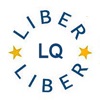Heading for the Open Road: Costs and Benefits of Transitions in Scholarly Communications
DOI:
https://doi.org/10.18352/lq.8010Keywords:
scholarly communications, publishing, open access, economics, modellingAbstract
This paper reports on a study — overseen by representatives of the publishing, library and research funder communities in the UK — investigating the drivers, costs and benefits of potential ways to increase access to scholarly journals. It identifies five different but realistic scenarios for moving towards that end over the next five years, including gold and green open access, moves towards national licensing, publisher-led delayed open access, and transactional models. It then compares and evaluates the benefits as well as the costs and risks for the UK. The scenarios, the comparisons between them, and the modelling on which they are based, amount to a benefit-cost analysis to help in appraising policy options over the next five years. Our conclusion is that policymakers who are seeking to promote increases in access should encourage the use of existing subject and institutional repositories, but avoid pushing for reductions in embargo periods, which might put at risk the sustainability of the underlying scholarly publishing system. They should also promote and facilitate a transition to gold open access, while seeking to ensure that the average level of charges for publication does not exceed circa £2,000; that the rate in the UK of open access publication is broadly in step with the rate in the rest of the world; and that total payments to journal publishers from UK universities and their funders do not rise as a consequence.Downloads
Download data is not yet available.

Published
2011-10-10
Issue
Section
Articles
License
Copyright (c) 2011 Michael Jubb

This work is licensed under a Creative Commons Attribution 4.0 International License.
How to Cite
Heading for the Open Road: Costs and Benefits of Transitions in Scholarly Communications. (2011). LIBER Quarterly: The Journal of the Association of European Research Libraries, 21(1), 102-124. https://doi.org/10.18352/lq.8010





